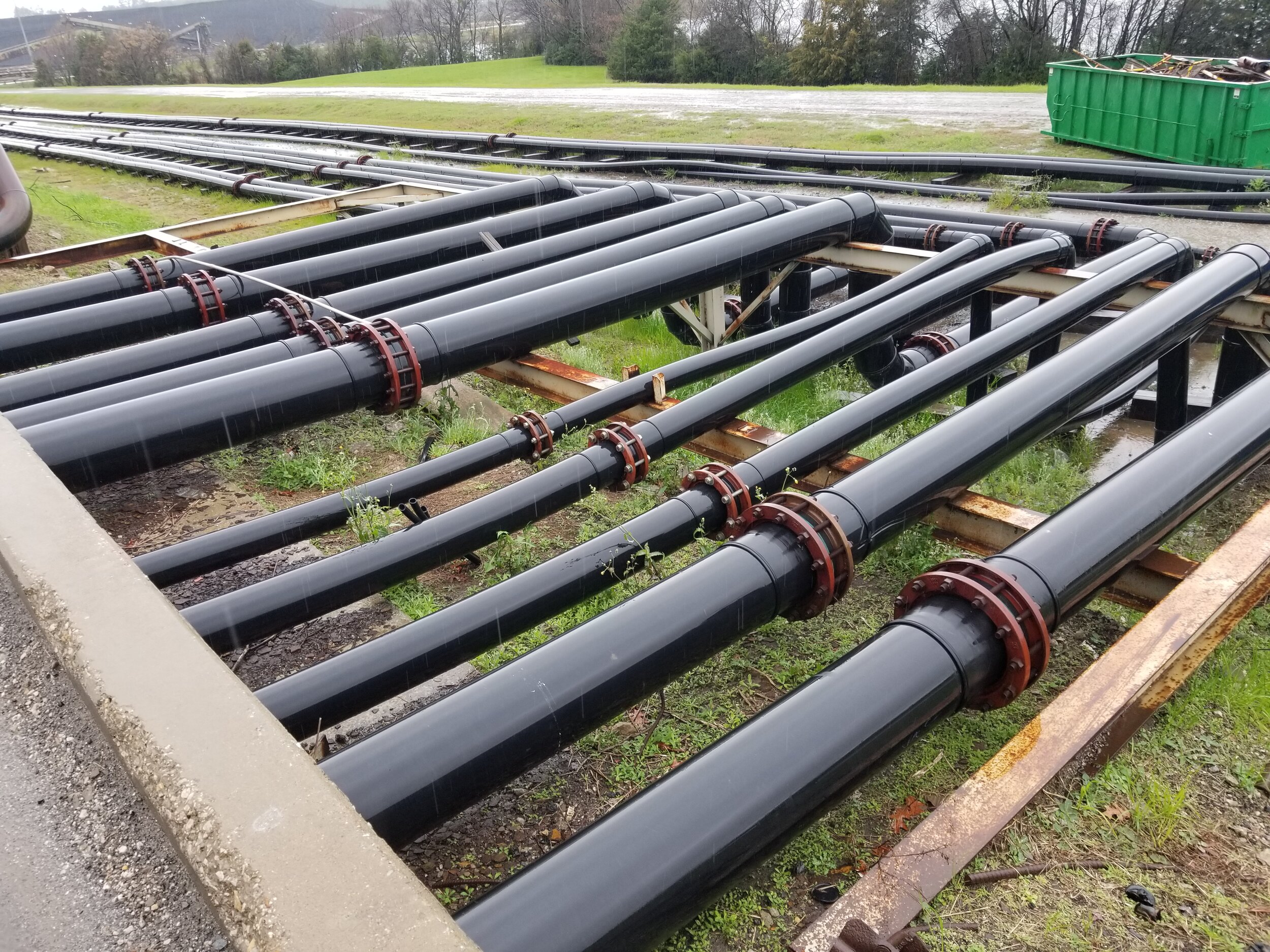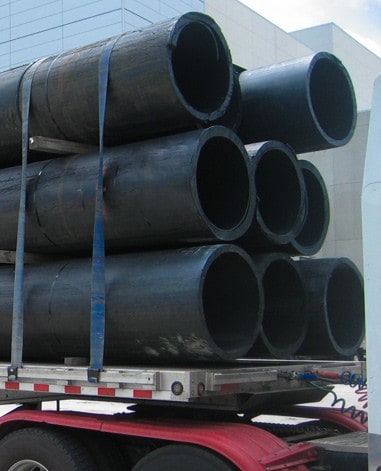Comprehending the Secret Advantages of HDPE Pipe for Water and Wastewater Management
The use of HDPE pipeline in water and wastewater monitoring provides various benefits that merit factor to consider. Its extraordinary toughness and long lifespan make it a recommended selection for lots of projects. In addition, the product's resistance to corrosion and chemical damages improves its reliability in various settings. Nevertheless, the benefits expand beyond simply long life and resistance. Discovering its cost-effectiveness and environmental influence reveals also much more engaging reasons for its prevalent adoption in contemporary infrastructure
Remarkable Durability and Durability

HDPE pipe sticks out for its remarkable longevity and longevity, making it a favored choice in water administration systems. Constructed from high-density polyethylene, these pipes can withstand substantial stress and stress, ensuring trusted efficiency with time. Their durable nature permits them to sustain severe ecological problems, consisting of temperature changes and soil motions, which can trigger other materials to fail.
The life expectancy of HDPE pipes usually goes beyond half a century, providing an economical remedy for districts and sectors alike. In addition, the material's light-weight homes streamline installment, decreasing labor expenses and timeframes. This durability lessens the demand for frequent repair services or substitutes, further enhancing its economic allure.
In water administration applications, the reliability of HDPE pipelines indicates fewer interruptions and boosted solution connection, making them important to lasting framework development. The combination of sturdiness and longevity solidifies HDPE's function as a cornerstone in efficient water administration remedies.

Resistance to Corrosion and Chemical Damage
While several materials succumb to rust and chemical damages in time, HDPE pipelines display impressive resistance, making them optimal for numerous water management applications. This durability originates from the molecular structure of high-density polyethylene, which is naturally non-reactive and does not wear away like metals or break down from direct exposure to severe chemicals. Because of this, HDPE is very effective in atmospheres with hostile substances, such as wastewater systems that might have acids, bases, and natural solvents.
Furthermore, HDPE pipelines can withstand environmental aspects such as dirt level of acidity and saline conditions, even more improving their suitability for diverse applications (hdpe pipe fittings Midland TX). Their capability to preserve structural integrity in time decreases the risk of leaks and failures, which is crucial in guaranteeing the security and dependability of water distribution and wastewater management systems. The resistance to deterioration and chemical damages substantially adds to the general effectiveness and longevity of HDPE piping remedies.
Cost-Effectiveness and Financial Advantages
When taking into consideration the financial ramifications of water management systems, the cost-effectiveness of HDPE pipes ends up being noticeable. These pipelines provide lower installation and maintenance costs compared to traditional materials like metal or concrete. Their light-weight nature simplifies transportation and setup, leading to minimized labor expenditures. Additionally, HDPE pipes show a lengthy life expectancy, frequently surpassing 50 years, which translates to less substitutes and lasting savings.
The resistance of HDPE to deterioration and chemical damages minimizes the need for pricey repair work and substitutes. The pipes also sustain effective water flow, minimizing power expenses associated with pumping systems. By alleviating leakages and water loss, HDPE elbow pipe pipes add to substantial financial benefits for towns and sectors alike. Overall, the preliminary financial investment in HDPE piping can generate substantial monetary returns over the life-span of the water administration system, making it a sensible choice for sustainable facilities growth.
Environmental Sustainability and Lowered Effect

Versatility and Adaptability in Installment
Due to the fact that of their unique properties, HDPE pipelines provide exceptional flexibility and versatility in setup, making them appropriate for a large range of applications. Their lightweight nature permits easier handling and transport, decreasing labor prices and installation time. HDPE pipes can be curved and shaped to fit numerous terrains and task requirements, which is specifically helpful in testing environments.
In addition, their resistance to corrosion and chemical damages permits setup in varied settings without the demand for specialized protective layers. The ability to fuse joints produces a continuous, leak-free system, improving the total stability and integrity of the installation. HDPE's adaptability also fits ground activity, minimizing the threat of damage in areas susceptible to changing soil. Generally, these features make HDPE pipelines not only flexible yet additionally a preferred choice for water and wastewater administration systems.
Often Asked Inquiries
Just How Does HDPE Pipe Compare to PVC in Water Management Applications?
HDPE pipe provides remarkable versatility, resistance to deterioration, and resilience compared to PVC. Its lighter weight helps with much easier setup, while its lengthy life-span lowers substitute prices, making HDPE a recommended selection in water management applications.
What Is the Lifespan of HDPE Pipes Under Common Conditions?
Under water service line repair common conditions, HDPE pipes can have a life expectancy ranging from 50 to 100 years. Their longevity and resistance to rust add to their lasting efficiency in numerous applications, making go to these guys them a trustworthy selection for infrastructure.
Are HDPE Pipeline Recyclable After Their Life Span?
Yes, HDPE pipelines are recyclable after their service life. American Plastics HDPE Pipe Manufacturing. They can be processed and repurposed into new items, substantially minimizing ecological effect and advertising sustainability within the sector, making them an environmentally friendly choice for piping remedies
What Is the Installment Process for HDPE Pipes?
The installment procedure for HDPE pipes includes site prep work, trenching, pipe blend or mechanical joining, backfilling, and stress testing. Proper methods guarantee a durable and reliable system for carrying water and wastewater properly.
Can HDPE Pipeline Be Made Use Of for Both Potable and Non-Potable Water Solutions?
Yes, HDPE pipelines can be used for both drinkable and non-potable water supply. Their flexibility, resilience, and resistance to deterioration make them appropriate for different applications, making certain risk-free and reliable transportation of water in different contexts.